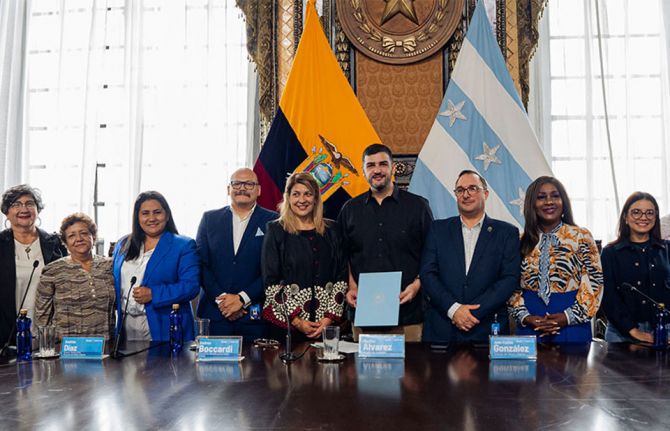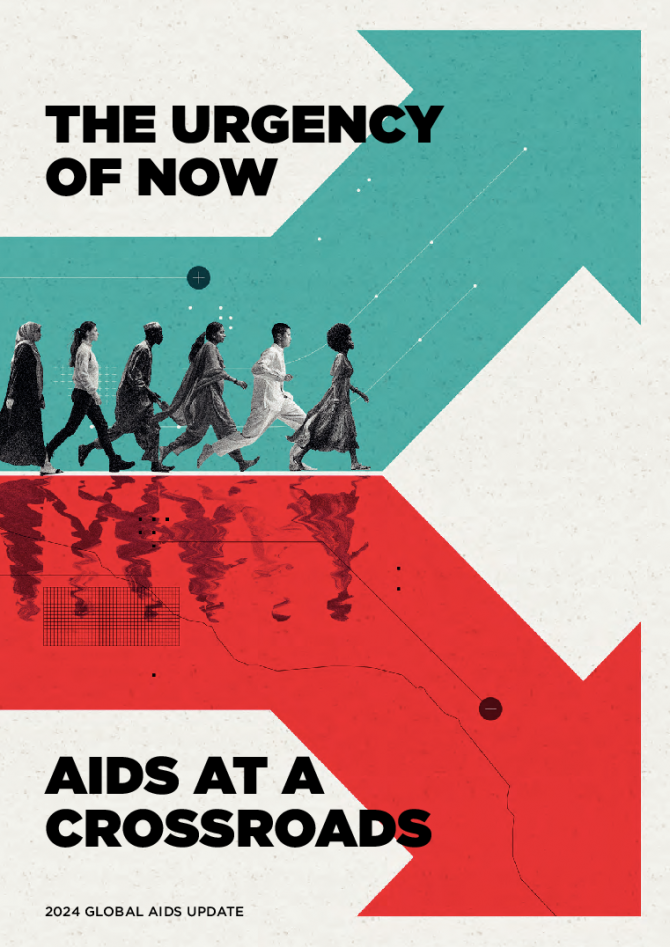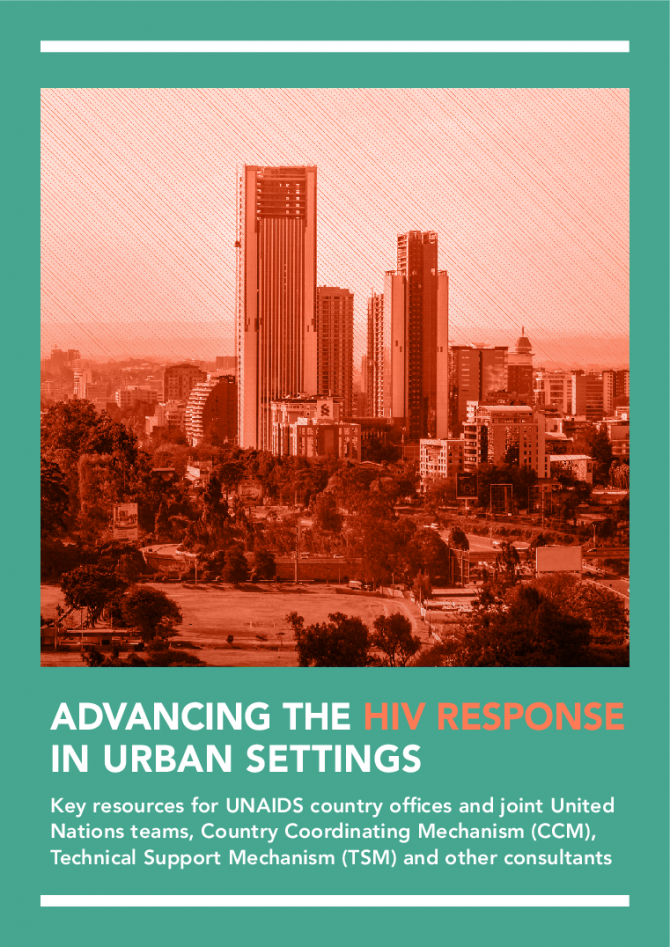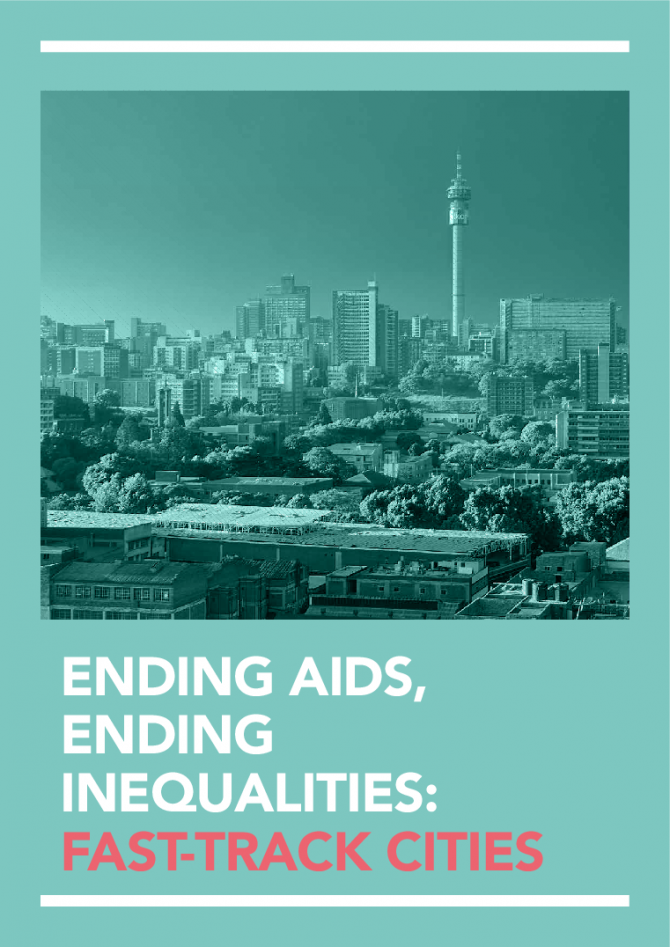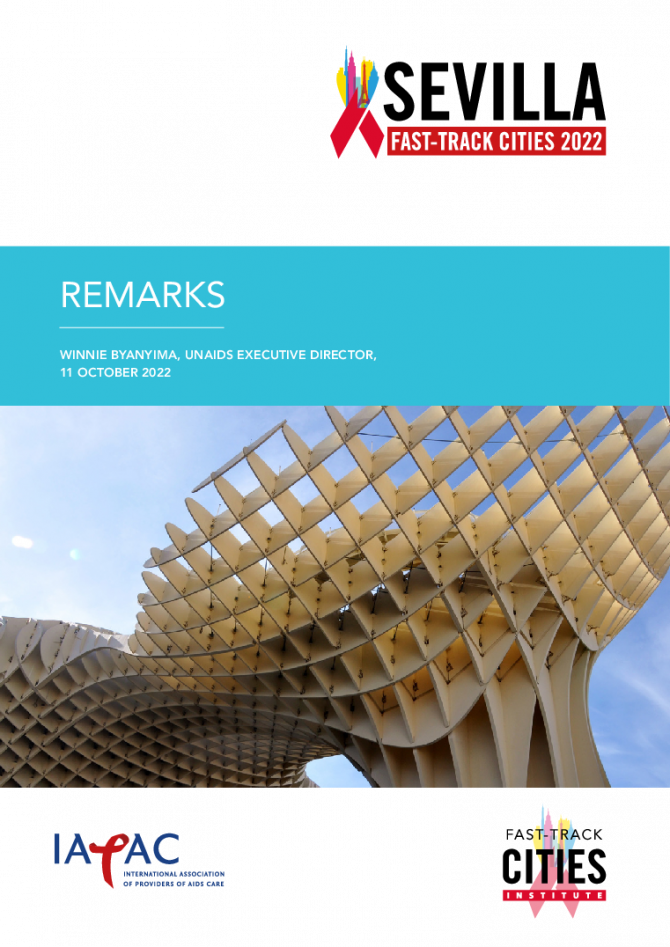
Topic
Fast-Track cities
Fast-Track cities
Cities play a critical role in the United Nations Political Declaration on HIV and AIDS: Ending Inequalities and Getting on Track to End AIDS by 2030, and the Global AIDS Strategy 2021–2026: End Inequalities, End AIDS highlights the centrality of urban settings as a cross-cutting issue in all areas of the HIV response. More than half of the world’s population currently live in cities and cities account for a large and growing proportion of people living with HIV, tuberculosis (TB) and other diseases. The risk of contracting, and vulnerability to, HIV and TB infection is often higher in urban areas compared to rural areas, because of urban dynamics such as social networking, migration, unemployment and social and economic inequalities.
Nevertheless, cities have historically taken the lead in the AIDS response. As dynamic centres for economic growth, education, innovation, positive social change and sustainable development, cities offer important opportunities and have inherent advantages in accelerating the response and in taking transformative action to ensure that services are delivered to everyone in an equitable and efficient way.
The Fast-Track cities network, with the core partners of UNAIDS, the City of Paris, the International Association of Providers of AIDS Care (IAPAC) and UN-Habitat, serves to provide support to priority cities to Fast-Track their HIV responses, to deliver on the commitments of the Paris Declaration to end the AIDS epidemic by 2030 and to address disparities in access to basic health and social services, social justice and economic opportunities. Since its launch on 1 December 2014, more than 300 cities and municipalities have signed the Paris Declaration.
Support for Fast-Track cities
Building on the momentum of the Fast-Track cities initiative, two of its core partners, UNAIDS and IAPAC, with support from the United States President’s Emergency Plan for AIDS Relief (PEPFAR) and the United States Agency for International Development (USAID), initiated the joint UNAIDS-IAPAC Fast-Track cities project in October 2017.
The project aims to provide essential and strategic technical support over a five-year period to 15 cities to accelerate their HIV responses and achieve key Fast-Track Targets, and to deliver on the commitments of the Paris Declaration to end the AIDS epidemic in cities.
The 15 priority cities supported through this project together account for about 3 million people living with HIV. They were selected on the basis of their high HIV burden and gaps in treatment coverage and on their commitment and capacity to Fast-Track the HIV response.
For more information about the joint UNAIDS-IAPAC Fast-Track cities project see:
- Fast-Track cities project outline (which includes general information, objectives and achievements of the project)
- Fast-Track cities project frequently asked questions (FAQ)
Read more
Videos
Stories
Publications



